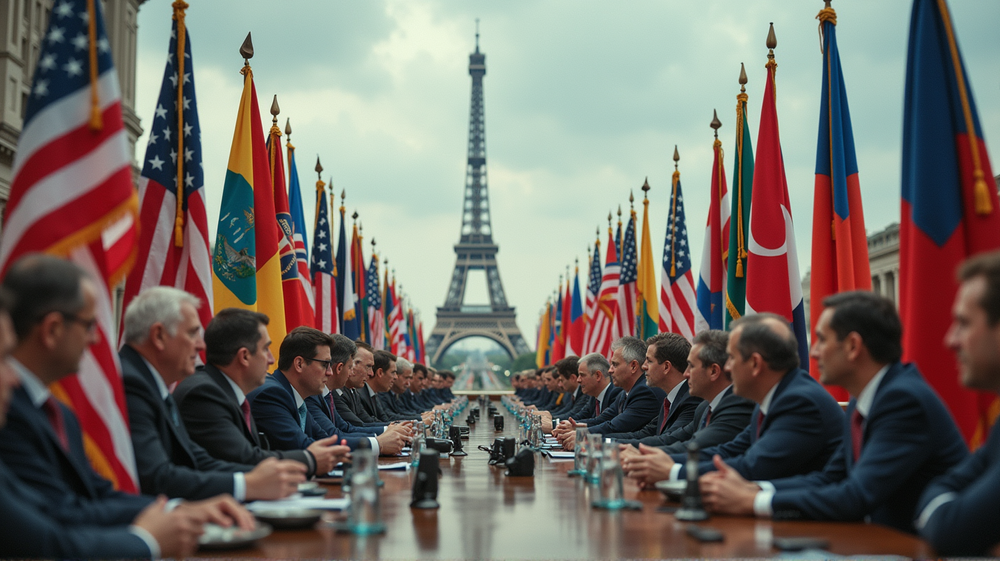How Trump's Pressure is Strengthening Economic Bonds Among US Allies
The pressures of international politics under the Trump administration have led to an unforeseen ripple effect among US allies. In response to a series of tariffs and criticisms levied by the Trump administration, nations are finding new ways to solidify their partnerships—oftentimes focusing on defense production as a key avenue for building economic resilience.
Unintended Consequences of Tariffs
When President Trump imposed tariffs on a range of imports from countries traditionally seen as staunch allies, it created ripples that would unsettle conventional economic strategies. Many of these nations feared the repercussions on their domestic markets. Yet, rather than buckle under pressure, a new pattern of collaboration and economic correlation has emerged among these allies.
Defense Production as a Catalyst
Defense production has surprisingly become a focal point for these economic ties. As the US administration prioritizes domestic manufacturing, allies have been compelled to look elsewhere to meet defense needs. Hence, collaborative ventures between countries like Germany, Japan, and France have helped kickstart a range of joint defense initiatives.
Building Beyond Politics
While Trump’s policies may have initially strained diplomatic relations, they’ve also inadvertently fortified inter-ally relationships. The need for self-sufficiency in defense has opened doors for closer economic ties, underpinned by shared technology, resources, and investments. This pivot not only strengthens strategic alliances but also advances innovation in defense technologies.
A Broader Economic Impact
Such defense collaborations extend beyond military terms, influencing broader economic strategies among allies. Manufacturing capabilities are not only expanding within defense sects but also spilling over into other industries, fostering job growth and technological advancements. This strengthens the collective economy of participating nations, creating a network of shared resilience against economic uncertainties.
The Future of Transatlantic Relations
The current climate poses a larger question regarding the evolution of transatlantic relations beyond the Trump era. These developments signal a potential shift in how nations measure and respond to global economic challenges, invigorating a sense of unity among equals in face of common pressure.
According to Bloomberg.com, these are vital steps in maintaining a balanced economic relationship amid fluctuating policies and a challenging geopolitical landscape. Could this approach mark the start of a new era of collaborative growth?
In a world where political pressures can initiate change in unexpected ways, nations are proving that unity through shared economic goals can build bridges as effectively as diplomacy.




